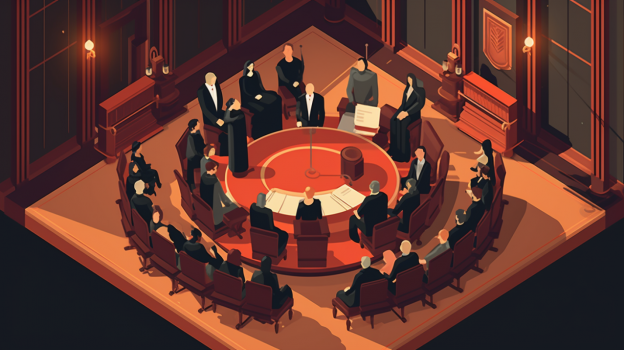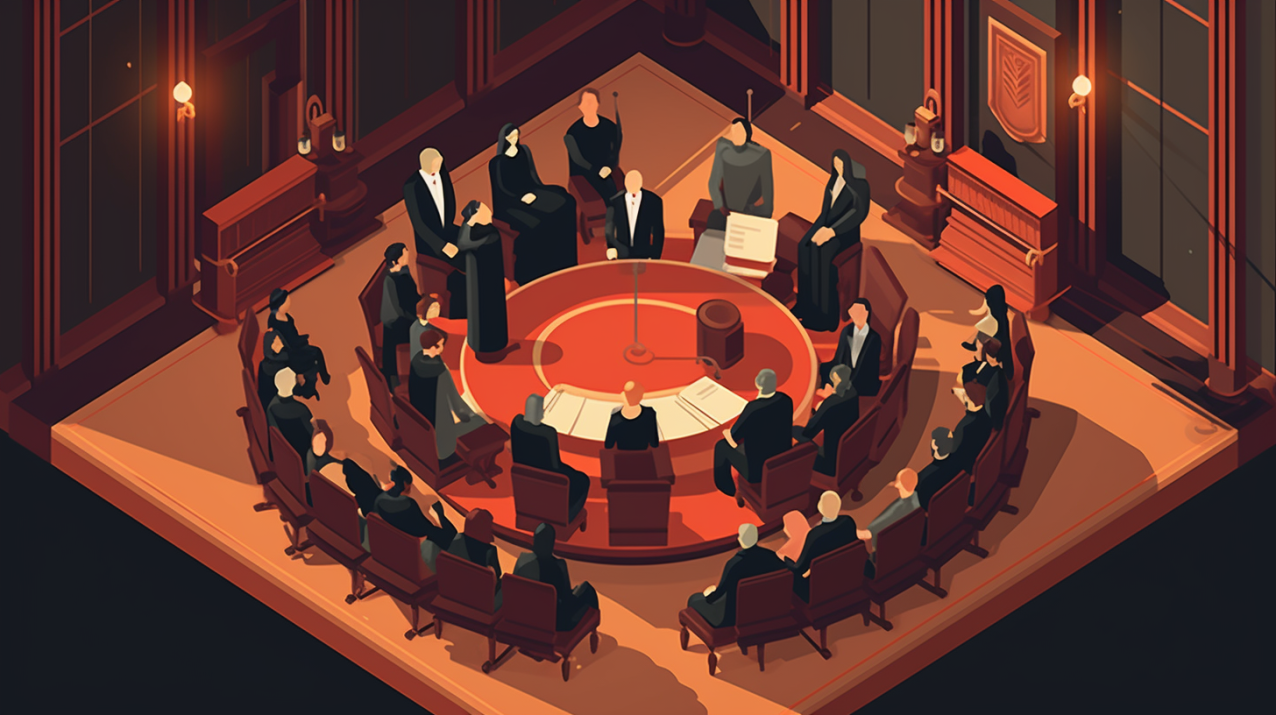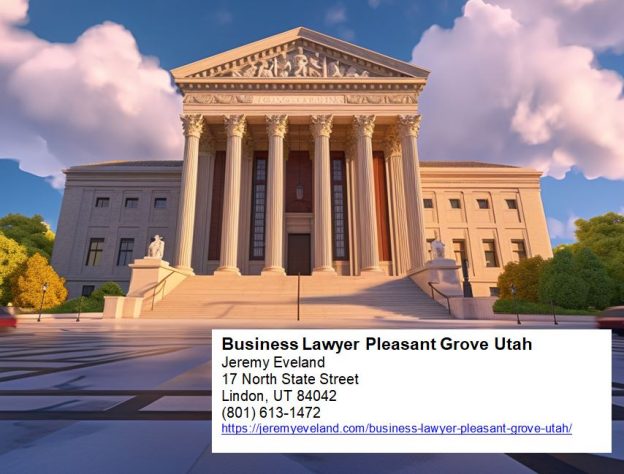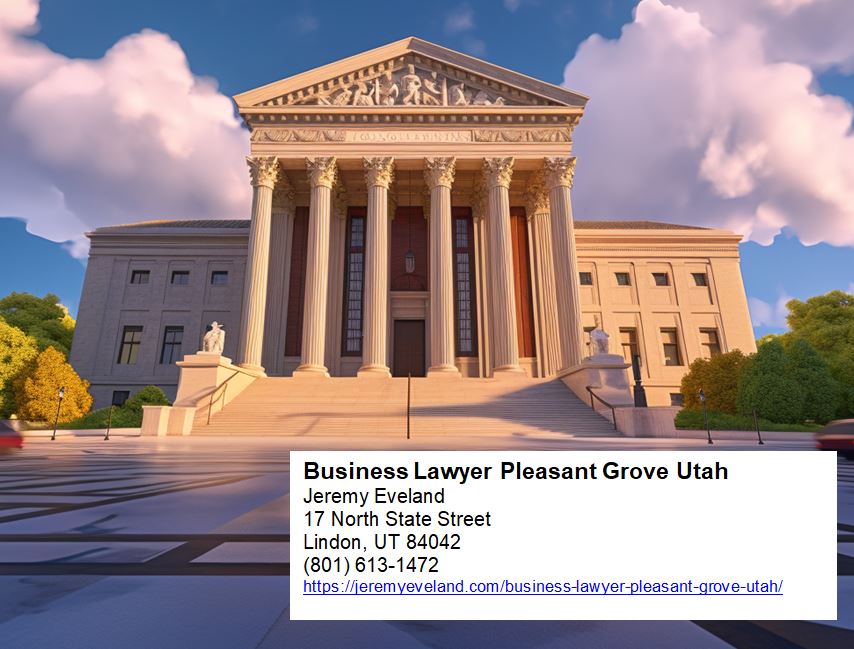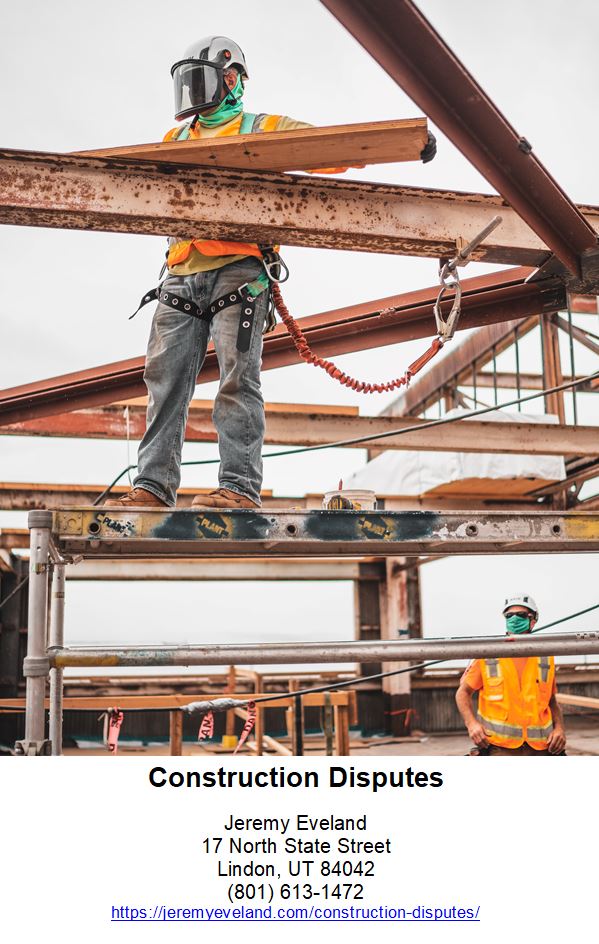Are you currently facing a family law issue and feeling overwhelmed by the legal process? Look no further than family law arbitration. In this article, we will explore the benefits of opting for arbitration as a way to resolve your family law disputes. From child custody battles to division of assets, arbitration offers a confidential, flexible, and efficient alternative to traditional courtroom litigation. With the guidance of a skilled attorney, you can navigate through the complexities of family law and find a fair and satisfactory resolution. Don’t hesitate to take the next step and contact the attorney listed on our website to learn more about how family law arbitration can provide the support and guidance you need in your legal journey.

What is Family Law Arbitration?
Family Law Arbitration is a process that is used to resolve disputes in family law cases. It is an alternative to going to court and allows parties to work with a neutral third-party, called an arbitrator, to reach a resolution in their case. This method of dispute resolution offers a number of benefits over traditional litigation, including confidentiality, cost-effectiveness, and a faster resolution.
Definition of Family Law Arbitration
Family Law Arbitration is a legal process in which parties involved in a family law dispute agree to have their case heard by an impartial third-party, known as an arbitrator. The arbitrator reviews the evidence and arguments presented by both sides and makes a binding decision that resolves the dispute. This decision, known as an arbitration award, is enforceable by a court of law.
Benefits of Family Law Arbitration
Family Law Arbitration offers several advantages over traditional litigation:
-
Confidentiality: Unlike court proceedings, family law arbitration is private and confidential. This means that details of the case, including sensitive information, will not be made public.
-
Cost-Effectiveness: Family law arbitration typically costs less than going to court. The parties involved can save on legal fees, court costs, and other associated expenses.
-
Faster Resolution: Family law arbitration is often quicker than going through the court system. Parties can have their dispute resolved in a more timely manner, reducing stress and uncertainty.
-
Flexibility and Control: In family law arbitration, the parties have more control over the process. They can select the arbitrator, determine the schedule, and choose the rules that will govern the arbitration.
-
Less Adversarial Environment: Family law arbitration encourages a less adversarial approach to resolving disputes. Parties have the opportunity to work together towards a fair resolution, rather than engaging in a contentious courtroom battle.
How Family Law Arbitration Works
Family Law Arbitration involves the following steps:
-
Agreement to Arbitrate: Both parties agree to submit their dispute to arbitration. This agreement can be made before or after a lawsuit has been filed.
-
Selection of an Arbitrator: The parties choose a qualified arbitrator who will hear their case. This selection is typically based on the arbitrator’s qualifications, experience, specialization in family law, impartiality, and availability.
-
Gathering Evidence and Information: The parties and their attorneys gather all necessary evidence and information to present their case during the arbitration process. This may include documents, witness statements, and expert opinions.
-
Arbitration Hearing: The parties present their case to the arbitrator during a formal hearing. Each side has the opportunity to present evidence, call witnesses, and make legal arguments.
-
Arbitration Award: After considering all the evidence and arguments presented, the arbitrator makes a decision, known as the arbitration award. This decision is legally binding and resolves the dispute.
-
Enforcement and Review: The arbitration award can be enforced by a court of law if necessary. In some cases, parties may have the option to request a review or challenge the award under certain circumstances.
When Can Family Law Arbitration be Used?
Family Law Arbitration can be used in various types of family law cases. Some common scenarios where family law arbitration is applicable include:
Divorce and Separation Cases
Family law arbitration can be used to resolve issues related to divorce or legal separation. This may include matters such as property division, debt allocation, child custody, visitation, and spousal support.
Child Custody and Visitation Disputes
When parents are unable to reach an agreement on custody and visitation arrangements for their children, family law arbitration can provide a way to resolve these disputes. The arbitrator can consider the best interests of the children and make a decision that provides for their well-being.
Property and Asset Division
Family law arbitration is often used to determine how marital property and assets will be divided between spouses in divorce cases. This can include real estate, vehicles, bank accounts, retirement funds, and other valuable assets.
Spousal and Child Support Matters
Family law arbitration can be used to resolve disputes regarding spousal support (also known as alimony) and child support. The arbitrator can consider the financial circumstances of both parties and make a decision that is fair and reasonable.
Choosing an Arbitrator
Choosing the right arbitrator is essential to ensuring a fair and effective arbitration process. Here are some key considerations when selecting an arbitrator for your family law case:
Qualifications and Experience
Look for an arbitrator who is qualified and experienced in family law matters. This ensures that the arbitrator understands the complexities of family law and can make informed decisions based on legal principles and precedent.
Specialization in Family Law
It is important to choose an arbitrator who specializes in family law. This ensures that the arbitrator has a deep understanding of the unique dynamics and legal considerations involved in family law cases.
Impartiality and Neutrality
The arbitrator must be impartial and neutral, meaning they have no personal or financial interest in the outcome of the case. This ensures that the arbitrator will make decisions based solely on the evidence and arguments presented.
Availability and Timeliness
Consider the availability of the arbitrator and their ability to handle the case in a timely manner. Family law disputes often require prompt resolution, and it is important to choose an arbitrator who can commit to meeting the necessary deadlines.
Benefits of Family Law Arbitration
Family Law Arbitration offers several benefits that make it an attractive alternative to traditional litigation:
Confidentiality
One of the key advantages of family law arbitration is the confidentiality it provides. Unlike court proceedings, which are typically open to the public, arbitration is a private process. This means that the details of the case, including sensitive personal and financial information, remain confidential.
Cost-Effectiveness
Family law arbitration is often more cost-effective than going to court. The parties involved can save on legal fees, court costs, and other expenses associated with litigation. In addition, the streamlined process of arbitration can result in a quicker resolution, further reducing costs.
Faster Resolution
Family law arbitration generally offers a faster resolution than litigation. Parties have more control over the process and can work together to set a schedule that suits their needs. This can help alleviate stress and uncertainty, allowing the parties to move forward with their lives more quickly.
Flexibility and Control
Family law arbitration allows parties to have more flexibility and control over the process. They can choose the arbitrator, determine the rules that will govern the arbitration, and select a schedule that works for everyone involved. This level of control can lead to a more satisfactory outcome for all parties.
Less Adversarial Environment
Family law disputes can be emotionally charged, and the adversarial nature of litigation often exacerbates conflicts. Family law arbitration provides a less adversarial environment where parties can work together in a more collaborative manner. This can lead to a more constructive and amicable resolution of the dispute.

How is Family Law Arbitration Different from Mediation?
While family law arbitration and mediation are both forms of alternative dispute resolution, they differ in several key ways:
Role of the Arbitrator
In family law arbitration, the arbitrator acts as a judge and makes a binding decision based on the evidence and arguments presented. In mediation, the mediator acts as a neutral facilitator who helps the parties reach a mutually acceptable agreement but does not make decisions.
Decision-Making Authority
In family law arbitration, the arbitrator has the authority to make binding decisions that resolve the dispute. These decisions are enforceable by a court of law. In mediation, the parties themselves make the decisions and reach an agreement with the help of the mediator. The mediator does not have decision-making authority.
Legal Enforceability
Family law arbitration awards are legally binding and can be enforced by a court of law. On the other hand, the agreements reached in mediation are not automatically legally binding. They can be made enforceable by incorporating them into a court order or agreement, but this requires further legal steps.
The Family Law Arbitration Process
Family law arbitration typically involves the following steps:
Initial Consultation
The parties meet with the arbitrator to discuss their case and determine if arbitration is the right option for them. The arbitrator will explain the process, answer any questions, and ensure that both parties understand their rights and responsibilities.
Agreement to Arbitrate
If both parties agree to proceed with arbitration, they will sign an agreement to arbitrate. This agreement outlines the scope of the arbitration, the rules that will govern the process, and the responsibilities of all parties involved.
Gathering Evidence and Information
Both parties and their attorneys gather all necessary evidence and information to support their case. This may include financial documents, witness statements, expert reports, and other relevant evidence.
Arbitration Hearing
During the arbitration hearing, both parties present their case to the arbitrator. They have the opportunity to present evidence, call witnesses, and make legal arguments. The arbitrator may ask questions or request additional information as needed.
Arbitration Award
After considering all the evidence and arguments, the arbitrator makes a decision, known as the arbitration award. This decision is legally binding and resolves the dispute. The arbitrator may provide a written explanation or rationale for their decision.
Enforcement and Review
The arbitration award can be enforced by a court of law if necessary. In some cases, parties may have the option to request a review or challenge the award under certain circumstances. It is important to consult with an attorney to understand the specific procedures and requirements for enforcement and review.
Key Considerations in Family Law Arbitration
When deciding whether to participate in family law arbitration, there are several key considerations to keep in mind:
Voluntary Participation
Family law arbitration is a voluntary process and requires the agreement of both parties. It is important to carefully consider the benefits and potential drawbacks of arbitration before agreeing to participate.
Conflicts of Interest
It is essential to ensure that the arbitrator selected does not have any conflicts of interest that may compromise their neutrality or impartiality. This can include personal, financial, or professional relationships with either party.
Legal Representation
While legal representation is not required in family law arbitration, it is highly recommended. An experienced family law attorney can provide guidance, advocate for your interests, and help navigate the arbitration process.
Role of the Court
Family law arbitration is an alternative to going to court, but the court still plays a role in the process. The arbitration award must be enforced by a court if necessary, and the court may have oversight or intervention in certain situations.
Appeals and Challenges
Family law arbitration awards are generally final and binding. However, there may be limited options for appeals or challenges under certain circumstances. It is important to consult with an attorney to fully understand the options and procedures for challenging an arbitration award.
Potential Concerns and Limitations
While family law arbitration offers many benefits, there are some potential concerns and limitations to be aware of:
Lack of Formal Discovery
Unlike court proceedings, family law arbitration may not include formal discovery processes, such as depositions or extensive document requests. This can limit the amount of information available to the parties and may impact the decision-making process.
Limited Appeal Options
Family law arbitration awards are generally final and binding, with limited options for appeals or challenges. Parties must be aware that there may be limited opportunities to seek a different outcome once the arbitration award is issued.
Inability to Compel Third-Party Witnesses
In family law arbitration, the arbitrator does not have the same authority as a judge to compel the attendance of third-party witnesses. This can limit the ability to present certain evidence or testimony during the arbitration process.
Possibility of Biased Arbitrators
While arbitrators are expected to be impartial and neutral, there is a possibility that an arbitrator may have biases or predispositions that could impact their decision-making. It is important to carefully select an arbitrator with a reputation for fairness and impartiality.

Ensuring Fairness and Enforcement
To ensure fairness and proper enforcement in family law arbitration, several steps can be taken:
Arbitration Agreement Review
Before participating in family law arbitration, it is important to carefully review the arbitration agreement with an attorney. The agreement should clearly outline the scope of the arbitration, the rules that will govern the process, and the rights and responsibilities of all parties involved.
Compliance with Family Law Guidelines
During family law arbitration, it is important to ensure that any decisions or resolutions reached are in compliance with applicable family law guidelines and regulations. This helps ensure that the outcome is fair and meets legal requirements.
Complaint Process and Remedies
If any issues or concerns arise during the arbitration process, parties should be aware of the complaint process and remedies available. This may include filing a complaint with the appropriate regulatory body or seeking legal remedies.
Court Oversight and Intervention
While family law arbitration is an alternative to going to court, the court still has a role to play in enforcing arbitration awards and providing oversight in certain situations. If necessary, parties can seek court intervention to address any concerns or issues that arise during or after the arbitration process.
Conclusion
Family Law Arbitration is a valuable tool for resolving disputes in family law cases. It offers a confidential, cost-effective, and faster alternative to traditional litigation. With the ability to select an arbitrator, control the process, and work towards a more amicable resolution, family law arbitration provides an opportunity for parties to reach a fair and satisfactory outcome. However, it is important to carefully consider the specific circumstances of your case and consult with a qualified attorney to determine if family law arbitration is the right option for you.











